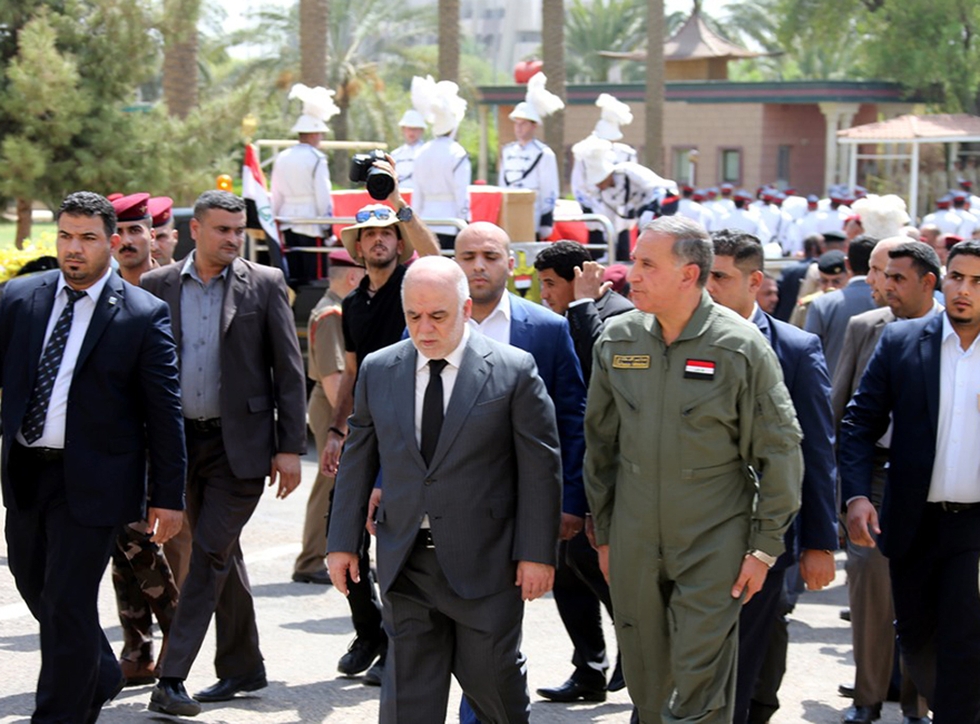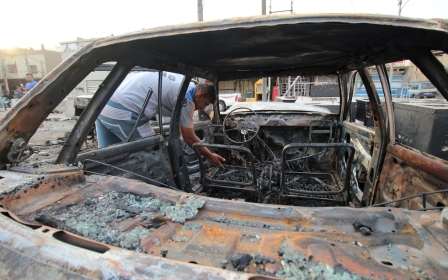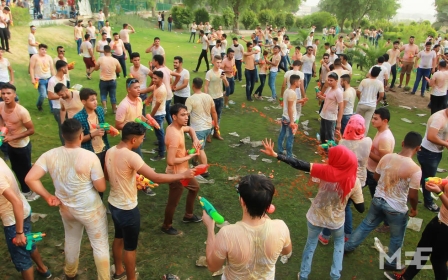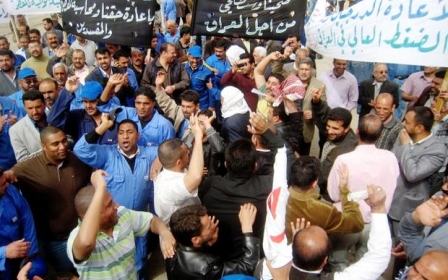Iraqi PM announces plan to dismantle Baghdad's Green Zone

Iraqi Prime Minister Haider al-Abadi ordered security forces to open up the fortified Green Zone in Baghdad to the public, shortly before a bomb blast killed six people in the capital on Friday.
In a move likely to alarm foreign dignitaries, Abadi’s office called on security forces to make "the necessary arrangements to open the Green Zone to the citizens,” according to a statement, though he did not specify the date.
In addition, he called on areas and roads cut off by various paramilitary and political groups to be opened as well.
His announcement came shortly before a bomb blast at a police station car park claimed the lives of six people, while wounding 10 others.
Police had been attempting to defuse the bomb in the car park prior to the explosion, which so far no one has claimed responsibility for.
The Green Zone is a heavily reinforced area of Baghdad established following the American-led invasion of 2003 which houses foreign embassies, military operations rooms, hotels frequented by foreign visitors and legislative bodies.
In June, Lt Gen Abdul Amir al-Shammari, head of Baghdad Operations Command (BOC), told Middle East Eye that there had been plans to gradually dismantle the Green Zone, citing the improved security situation in Baghdad.
“We opened an office responsible for buying and selling all the cars in Baghdad,” he said.
“We made a contract between this office and the people in Iraq, submitted by the BOC commander and nobody can buy or sell any cars without our permission. This year, 2015, until now there have been no car bombs.”
Baghdad has been in a constant state of unrest since the invasion and travel around the capital has been heavily restricted by checkpoints and cordoned-off areas.
However, a new drive by the Abadi administration to clamp down on corruption and cronyism and bring more transparency to the state has prompted a number of reforms, including cutting down on bureaucracy and abolishing a number of cabinet positions including that of the vice presidents.
Iraq’s highest Shia religious authority Ali Sistani on Friday warned that some Iraqi politicians might seek to undermine the government reforms out of their own self-interest.
He also called for protesters to make their demands to the government clear and not allow themselves to be hijacked by “the enemy,” possibly referring to IS.
'War against corruption'
More anti-corruption protests were set for Friday, with tensions raised after the prominent Shia political leader Muqtada al-Sadr voiced support for the movement.
"We announce to all people and to the Sadrists in particular the need to participate in protests this Friday in Baghdad,” Sadr said through a televised speech by spokesman Salah al-Obeidi in Najaf on Monday.
"The Sadrist participants should merge with the other protesters in a single, national Iraqi crucible."
Concerns have been raised that the introduction of the hardlined Sadrists into what had so far been perceived as a non-partisan political movement could risk an escalation into conflict with the government.
Iraq’s powerful - and popular - militias have made a number of incursions into the political arena in recent months, such as when the previously apolitical Hezbollah in Iraq militia intervened in the dispute over electricity shortages in July.
Analysts have voiced fears over the potential future of politics in Iraq should the often sectarian militias continue their political activism.
“The leaders of the Shia militias have already promised that they will change the political process after this war with the IS group ends,” Ali al-Badri, a Shia Muslim MP, told Niqash.
“But their potential war against corruption and their participation in the political process may be even more dangerous than the fight against the Islamic State.”
Others have voiced concerns that Abadi’s current reforms do not go far enough with regards to the sectarian makeup of the cabinet, which after the reforms is still 52 percent Shia compared to 21 percent Sunni and 17 percent Kurdish.
New MEE newsletter: Jerusalem Dispatch
Sign up to get the latest insights and analysis on Israel-Palestine, alongside Turkey Unpacked and other MEE newsletters
Middle East Eye delivers independent and unrivalled coverage and analysis of the Middle East, North Africa and beyond. To learn more about republishing this content and the associated fees, please fill out this form. More about MEE can be found here.




